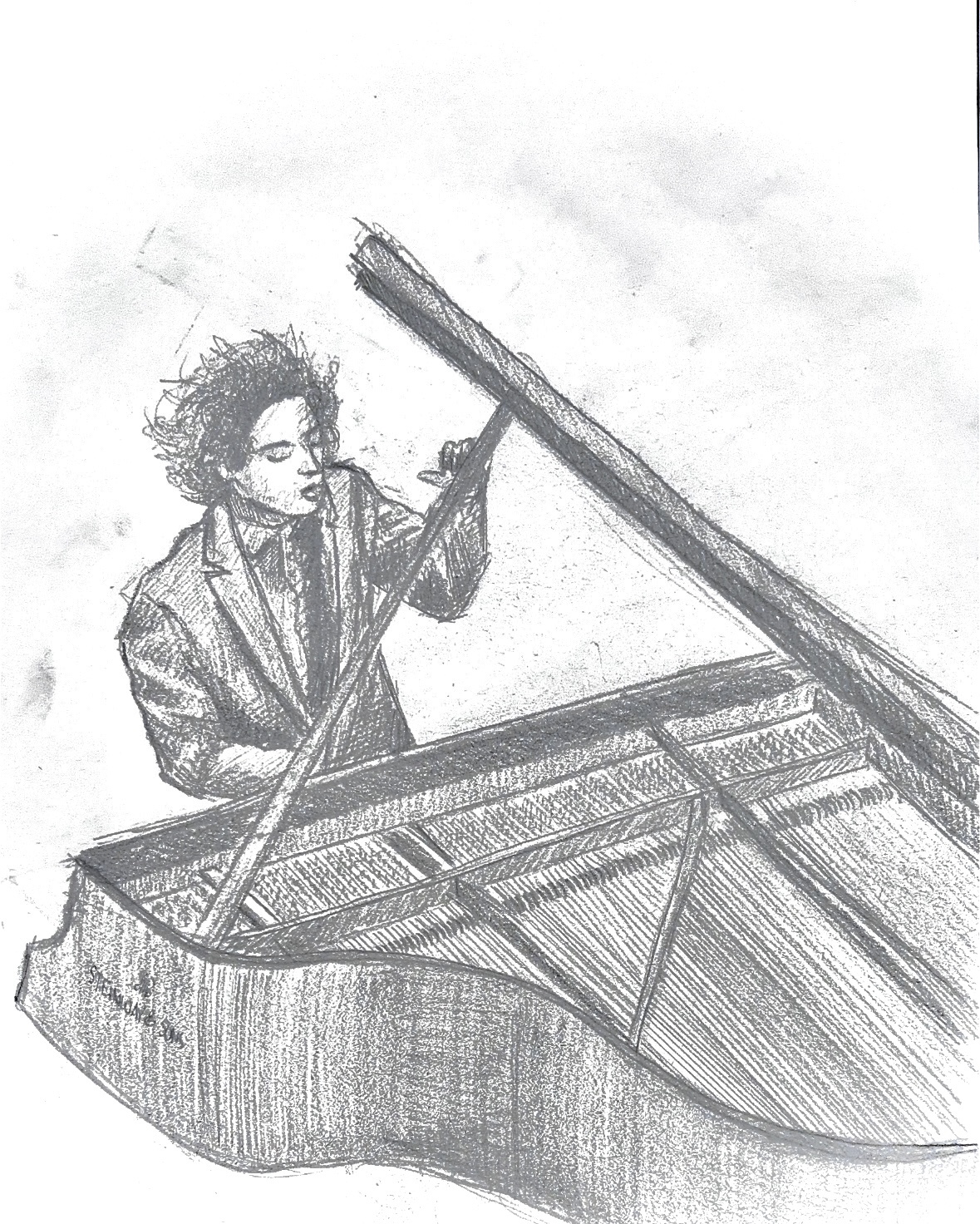REVIEW: Yunchan Lim proves his once-in-a-generation talent in recent performance with New York Philharmonic Orchestra
This performance marked his second appearance alongside the New York Philharmonic Orchestra, as well as the debut of conductor Kazuki Yamada and composer Dai Fujikura.

Amelia Shaw
On Saturday, Yunchan Lim delivered an emphatic performance of Chopin’s 2nd Piano Concerto in F minor with New York Philharmonic, one of four separate performances between Nov. 27 and Dec. 1 in the Lincoln Center’s David Geffen Hall.
Lim took center stage in 2022 after becoming the youngest-ever winner of the prestigious Van Cliburn International Piano Competition, launching his illustrious career. Ever since, he’s solidified his reputation as a once-in-a-generation talent.
Saturday’s performance was no different, causing audiences to marvel at his flawless technique, imaginative instincts and astounding musical maturity –– talent that stretched well beyond his years.
At just 20 years old, Lim has already made two appearances with the New York Philharmonic, having debuted with America’s leading orchestras last season with Rachmaninoff’s Third Piano Concerto.
This year, Lim brought Chopin’s F minor piano concerto to a sold-out concert hall. The piece was penned by the great Polish composer in 1830, when he was the same age as Lim.
While Chopin is unanimously celebrated as one of the most virtuosic and prolific composers for the piano, his only two concertos have been harshly criticized since their debuts. Many appraisals point to weak orchestration and lack of symphonic complexity, which is unsurprising considering all of his works, except the concerti and a Cello Sonata, are written for the solo piano.
Pianists have rearranged the score in past performances to accommodate gaps in this orchestration –– among them notably Alfred Cortot in 1935 and Mikhail Pletnev in 2017. Lim chose to stick with the urtext for his powerful performance, a decision that convinced audiences of the ingenuity of Chopin’s writing.
Unlike the Rachmaninoff piano concerto he played earlier this year, his strategic interpretation was not one of an emotional rollercoaster. Instead, Lim highlighted the subtleties of Chopin’s craft, exploring his signature use of harmony and early romantic style with tasteful sensitivity.
The piece opens with a solemn tutti, beginning with the strings and followed by a foreshadowing theme from the oboe. Almost all sound dissipates from the hall before the pianist’s emphatic entrance, which Lim played with utmost clarity.
Through the exposition, Lim remained poised, with almost a tame approach at the bench. He hardly moved throughout the performance, capturing the character of the piece only with the music itself.
As the movement went on, Lim was in complete control, pacing the development section with intention and spontaneity.
The only caveat to a near perfect execution of the first movement was the connection between orchestra, conductor and soloist. The accompanimental string sections, under the baton of a debuting Kazuki Yamada, sometimes disengaged during sparser passages, failing to support Lim’s embellishments and dense piano part.
Moreover, the fiery ending of the recapitulation was slightly underwhelming and failed to reciprocate Lim’s energy.
Conversely, the chemistry between performer and accompaniment beautifully rejoiced to capture the temperament of the nocturne-like second movement. The gentle and warm undertones of the orchestra complemented Lim’s sumptuous playing. His timing of ornamental figures, lyrical phrasing, and touch and quality of sound made for an astonishingly beautiful performance.
The last movement, written in the style of a mazurka, resembles that of an energetic dance and requires remarkable precision and dexterity. Lim performed the most difficult passages with ease, capturing the essence of a Polish dance while still maintaining the musical and structural cohesion of the overall concert.
Following the royal exclamation from the french horn before the coda, Lim brought the audience along one final voyage, this time with a conclusive quality to his playing. These last two minutes were perhaps the most convincing. It appeared as if Lim had finally come to terms with Chopin’s writing, understanding the piece for its nuance and complexity.
His execution of the coda drew the audience to the edge of their seats, enchanting them with his fairy-esque touch, before capping off the concerto with a robust and satisfying ending.
Unlike many of his previous performances, the audience didn’t immediately rise from their seats, perhaps still processing the noble finale. However, shortly after he began to bow, the entire hall was on their feet, cheering and whistling for the generational star.
As an encore, Lim performed the 13th variation from Bach’s Goldberg Variations, BMV 988, the complete work of which he will perform later in the season.
The New York Philharmonic performed two other works on the night — a New York Premiere of Entwine, by Japanese composer Dai Fujikura preceding the concerto in the first half, and a second half with Rachmaninoff’s Second Symphony.
The third movement, a sweeping and lyrical adagio, contains one of the most emotionally moving melodies in classical music. Principal Clarinetist Anthony McGill played the melody tenderly, blending love with longing. In one of the most touching moments in the whole program, the same theme is passed around to different instruments in the orchestra, which was paced to perfection by Yamada.
The audience left David Geffen Hall perhaps slightly winded from the hour-long symphony, but left with music to hum until the new year.
Lim’s next concert is on Dec. 17 at the Incheon Arts Center in South Korea.







